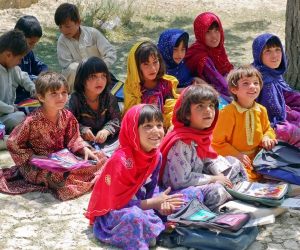M. Najeeb Shafiq is Professor of Education, Economics, and International Affairs.
He uses large data sets, advanced quantitative methods, and traditional and behavioral economics to understand education and political economy issues in low- and middle-income countries. His articles have appeared in economics, education, and international development outlets including American Journal of Education, Economics of Education Review, Education Economics, Education Policy Analysis Archives, International Journal of Educational Development, Journal of Conflict Resolution, Journal of Education Finance, Journal of Development Studies, Journal of International Development, Peabody Journal of Education, Research in Higher Education, and World Development. For free access to his research papers, please visit his official Pitt website.
Since Fall 2019, Professor Shafiq has served as the Executive Director of the Comparative and International Education Society (CIES), which is the largest and oldest of 47 comparative and international education associations around the world. Additionally, in October 2024, he was appointed Interim Director of the Institute for International Studies in Education (IISE) at the School of Education. He leads the CIES Office of the Executive Director at the University of Pittsburgh (OED@Pitt) with colleagues from the School of Education and the University Center for International Studies. His past administrative positions include serving as Department Chairperson (2016-19). Prior to arriving in Pittsburgh in 2010, he earned his PhD in Education and Economics from Columbia University and held appointments at the World Bank, Washington and Lee University, and Indiana University at Bloomington. He is married to Nazia Farzin Shafiq, with whom he has three daughters, Airah, Manal, and Nazeeba.
Professor Shafiq teaches graduate courses in the economics of education, quantitative methods, and comparative education. He welcomes inquiries from prospective students and visitors.
The social and non-monetary benefits of education (including the effects of education on civic, moral, political, and socioemotional outcomes)
Education, poverty, and social mobility in low- and middle-income countries
Human capital decisions during childhood (schooling, labor and play), adolescence and adulthood (education and labor)
Education reform (including educational vouchers and privatization, early childhood education, and higher education)
Shafiq, M. Najeeb and Alexandria Valerio (2021). The roles of childhood circumstances and schooling on adult reading skills in low- and middle-income countries. PROSPECTS: Quarterly Review of Comparative Education. DOI: https://doi.org/10.1007/s11125-021-09541-1.
Fasih, Tazeen, Harry Patrinos and M. Najeeb Shafiq (2020). University educated workers and their ability to deal with COVID-19 and future shocks. IZA World of Labor, July.
Sun, Lunxuan, M. Najeeb Shafiq, Maureen McClure, and Sisi Guo (2020). Are there educational and psychological benefits from private supplementary tutoring in Mainland China? Evidence from the China Education Panel Survey, 2013 – 2015. International Journal of Educational Development 72C.
Shafiq, M. Najeeb, Robert Toutkoushian and Alexandria Valerio (2019). Who benefits most from higher education in low- and middle-income countries? Journal of Development Studies 55(11), pp. 2403-2423.
Shafiq, M. Najeeb, Amanda Devercelli and Alexandria Valerio (2018). Are there long-term benefits from early childhood education in low- and middle-income countries? Education Policy Analysis Archives 26(122).
Comparative and International Education Society, Office of the Executive Director, approximately $260,000/year, 2019-2021.
The World Bank, “Who benefits most from higher education in low- and middle-income economies?” Co-PI with Alexandria Valerio, 2016.
The World Bank, “The cognitive and socio-emotional benefits of early childhood education: Short- and long-term evidence from low- and middle-income economies.” Co-PI with Amanda Devercelli and Alexandria Valerio, 2015.
The World Bank, “Does education influence social mobility? The role of education quality and quantity.” Co-PI with Alexandria Valerio, 2015.
Awards and Honors:
- 2014 | Outstanding Article Award, Journal of Education Finance, National Education Finance Conference
- 2012 | Top 10 Most Cited Articles of 2007-12, Journal Asian Economics, Elsevier
- 2010 – 11 | Top 20 Articles on Comparative Politics of Developing Countries, Routledge
- 2009 – 10 | Editor’s Choice and Most Downloaded Article of 2009 and 2010, Journal of Conflict Resolution, Sage
2012 – Present | Comparative and International Education Society
- Office of the Executive Director
- Executive Director (2019 – present)
- Comparative Education Review
- Editorial Board (2018 – present)
- Education in Global Perspective book series, SUNY Press
- Co-Editor (2018 – present)
2019 – 20 | American Educational Research Association
- Division L: Educational Policy and Politics
- Chair, Section 5: Testing and Accountability
2011 – Present | Research in Higher Education
- Consulting Editor
2003 – Present | The World Bank
- Contributor, World Development Report 2018 (2015 – 17)
- Short-Term Consultant (2003 – present)



